Yentl is a 1983 American romantic musical drama film from United Artists (through MGM), and directed, co-written, co-produced, and starring Barbra Streisand based on the play of the same name by Leah Napolin and Isaac Bashevis Singer, itself based on Singer's short story "Yentl the Yeshiva Boy".
| Yentl | |
|---|---|
Theatrical release poster | |
| Directed by | Barbra Streisand |
| Produced by |
|
| Screenplay by |
|
| Story by | Isaac Bashevis Singer |
| Based on | Yentl by
|
| Starring |
|
| Music by |
|
| Cinematography | David Watkin |
| Edited by | Terry Rawlings |
Production company |
|
| Distributed by | MGM/UA Entertainment Company |
Release date |
|
Running time |
|
| Country | United States |
| Language | English |
| Budget | $12 million |
| Box office | $40,218,899 |
The dramatic story incorporates humor and music to relate the story of an Ashkenazi Jewish girl in Poland who decides to dress and live like a man so that she can receive an education in Talmudic Law after her father dies. This cultural gender asymmetry that Yentl endures has been referenced in the medical community with the coining of the phrase Yentl Syndrome. The film's musical score and songs, composed by Michel Legrand, include the songs "Papa, Can You Hear Me?" and "The Way He Makes Me Feel", both sung by Streisand. The film received the Academy Award for Best Original Score and the Golden Globe Awards for Best Motion Picture—Musical or Comedy and Best Director for Streisand, making her the first woman to have won Best Director at the Golden Globes.
Screenplay
Barbra Streisand portrays Yentl Mendel, a girl living in an Ashkenazi shtetl named Pechev in Poland in 1904. Yentl's father, Rebbe Mendel (Nehemiah Persoff), secretly instructs her in the Talmud despite the proscription of such study by women according to the custom of her community.
After the death of her father, Yentl decides to cut all of her hair off, dress like a man, take her late brother's name, Anshel, and enter a Jewish religious school in Bychawa. Upon entering the yeshiva, Yentl befriends a fellow student, Avigdor (Mandy Patinkin), and meets his fiancée, Hadass (Amy Irving). Things get complicated when Hadass's family cancels her wedding to Avigdor over fears that his family is tainted with insanity (his brother committed suicide), and decides that she should marry Anshel instead. Meanwhile, Hadass develops romantic feelings for Yentl (as Anshel), while Yentl herself is falling in love with Avigdor. After much turmoil, Avigdor and Hadass are reunited, while Yentl leaves Europe to go to the United States, where she hopes to lead a life with more freedom.
Yentl begins with the same premise as Singer's original story. Streisand's character is a young woman growing up in an oppressive society that will not let her pursue her religious education. She is told she must have the "soul of a man" because of her desire to learn. Her talent, curiosity and ambition are considered strictly masculine by her society and religious tradition. Unwilling to live without access to education on the basis of sex, Yentl leaves her home and conceals her sex to be able to pursue the scholarly occupation of a Jewish man. In doing so, Yentl inadvertently embarks on a journey of self-discovery that defies traditional ideas of gender roles within her community.
Yentl's defiance of social expectation and her reversal of traditional gender roles crosses deeply rooted religious boundaries, particularly once Yentl marries Hadass. Until this point, Yentl only adopts the appearance and occupation of a man, but now she lives as man in a more complete sense, as a husband, occupying the traditionally male role in her household. Her identity as a woman, not only socially and religiously, but also personally and sexually, is called into question, as she occupies this role and develops an intimate, loving connection with Hadass, complete with hinted sexual chemistry.
In Singer's story, this dual betrayal of nature and the divine plan dooms Yentl to a life of pain, alienation, and shameful dishonesty. After her marriage ends in disaster, Yentl remains trapped forever in her disguise, unable to find redemption from her rejection of a normal life—a take on the legend of the Wandering Jew.
In Streisand's film, Yentl's defiance of expectation and definition, a rejection of sexist gender roles, is treated as a virtue. Though Yentl faces difficult choices in her attempt to live the life of her choosing, including sacrificing her love of Avigdor, she finds herself capable of following her dreams, of feeling different forms of love and intimacy with both sexes, as well as emerging from confusion and ambiguity with a powerful, independent sense of self-worth. At the film's conclusion, Yentl takes this developed, ever-evolving self to America to seek new possibilities and opportunities for discovery. Singer criticized the film's ending as hopelessly unrealistic, but the ending serves more as an affirmation of Yentl's independence and relentless optimism than a historically fitting conclusion to the narrative.
Throughout her complex interaction with Hadass and Avigdor, Yentl manages conflict with empathy and respect. Her difficult experiences expand, rather than trap her personality. She does not conform to expectations from her surroundings or from her audience, neither remaining merely a woman hiding in men's clothing nor revealing herself to be neutered or firmly homosexual. She refuses to accept a limited, traditional life, even when offered one in marriage to Avigdor. Rather, Yentl becomes a "real woman," thoroughly modern and encompassing "what society has defined as both masculine and feminine traits." In the end, her pain, her confusion and her loss never destroy her hope or resolve. She remains assertive and defiant, daring to find or to create room for new self-definition and new possibility, without seeking simple or complete resolution to ongoing challenges in her constant thirst for more.
Though Isaac Singer insists that Yentl does not have feminist undertones, many critics and viewers of the film consider Yentl to be a feminist role model. One reason is that she rebels against patriarchal Orthodox Jewish society by disguising herself as a man to do what she loves—study the Torah. Another reason is that although she finds herself in love with Avigdor, she has the strength to leave him behind, in exchange for a freer life in the US.
Jewish-American themes
Streisand's interpretation of I. B. Singer's "Yentl the Yeshiva Boy" has philosophical implications as a Jewish-American film. Streisand changed Singer's specific ending, in which Yentl wanders off presumably to a different yeshiva to continue her studies and her cross-dressing. In the film interpretation of the story, Yentl moves on, but this time to the US. Viewers are led to believe that in the States she can have both study and womanhood. This idea symbolizes a refusal to conform to old-world Jewish standards and instead move "against the authority and authenticity of the Judaic past," which Streisand asserts has "propelled itself so far from the austerity of Talmudic study."
Often Jewish-American immigrants who struck out on their own were unable to dedicate the amount of time and energy into text study that their ancestors had. Their lives instead were characterized by an "individualism and experimentalism" that "Jewish immigrants and their descendants have so strikingly honored, reinforced, and revised." The differences between the written version of this story, which originated in Warsaw, and the American film interpretation thus symbolize a potential philosophical shift from the self-understanding of Eastern-European Jewry to Jewish-American self-understanding. It suggests America can potentially alter preexisting Jewish values.
Heterosexual themes
Yentl blurs lines between male and female and its characters develop attractions that could be seen as homosexual, although the film upholds a heterosexual sensibility. Yentl's desire is exclusively for her study partner, Avigdor, while her marriage to a woman remains unconsummated and comic throughout the film. Because Yentl chooses to reveal herself as a woman to Avigdor in hopes of gaining his love, Yentl firmly establishes herself as a heterosexual female force in the film.
While Yentl does not take its characters outside the realm of heterosexuality, the film critically questions the "appropriateness of gender roles" as determined by society. Ultimately it argues that the society Yentl lived in does not allow equal opportunities for happiness for all people, especially women. In this way, it can be read as a heterosexual yet potentially feminist text.
- Barbra Streisand as Yentl Mendel
- Mandy Patinkin as Avigdor
- Amy Irving as Hadass Vishkower
- Nehemiah Persoff as Rebbe Mendel
- Steven Hill as Reb Alter Vishkower
- Allan Corduner as Shimmele
- Miriam Margolyes as Sarah
- Doreen Mantle as Mrs Shaemen
The soundtrack album to the film was released by Columbia Records in 1983.
The production of Barbra Streisand's film Yentl was a long and arduous process that delayed the project for over a decade.
After reading Isaac Singer's story "Yentl: The Yeshiva Boy" in 1968, Streisand sought to make it her next film after her completion of Funny Girl. The screen rights were gained in 1969, with Streisand to be the star. In 1971, the Czechoslovakian director, Ivan Passer, was originally hired by First Artists to direct the film. Singer wrote the screenplay and retitled it "Masquerade," but because of his belief that Streisand's age and celebrity would detract from the film, Singer backed out. In 1973, Streisand read Singer's story to her then partner, producer Jon Peters, to gain further support for the film. However, like Passer, he was convinced that Streisand was too old and feminine to convincingly play the part the film would demand. By 1976, after completing A Star Is Born, Streisand became convinced that she was, in fact, too old to play the part in Yentl, and would take up the film as director. Because she had wanted to be both the star and director, studios continued to draw back from funding the film, with the fear that Streisand as a rookie director would be unable to responsibly handle a multimillion-dollar project. Additionally, Streisand reported that studios claimed the film was "not commercial" because it was "too ethnic." In 1978, Streisand's friends, Alan and Marilyn Bergman, suggested that Yentl be re-imagined as a musical. It was hoped that a musical starring Barbra Streisand would be accepted and better received by a studio.
Jon Peters attempted to persuade Streisand to drop the project and perform at Wembley Stadium in London instead, for an offer of $1 million. She refused the offer as well as the $2 million follow-up to reconsider. Another offer by Peters, which was to be in excess of $10 million for Streisand to perform in Las Vegas, was also promptly turned down in favor of pursuing the Yentl project. Her attitude regarding her age quickly changed after she disguised herself as a man, temporarily confusing Peters into thinking that a stranger had broken into the house. Peters, now convinced of her ability to play a male, agreed to sign a three-year production contract with Orion Pictures in March 1978. To combat the age she was to play in the film, she changed Yentl from being 16 to 26.
According to various sources, Streisand became increasingly inspired and determined to bring Yentl into production when, in the summer of 1979, she and her brother Sheldon (Streisand) visited their father's grave at Mount Hebron Cemetery for the first time in 30 years. For the sake of making memory of the occasion, Streisand had her brother take a photo of her standing next to her father's tombstone. The photo revealed that Emmanual Streisand's grave was directly next to that of a man named Anshel, the name
Watch movie Yentl Film online on Amazon
Watch movie Yentl Film online
Watch The Movie On PrimeCheluvina Chiththara Full HD Movie Download
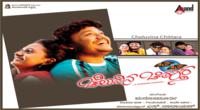
Raja (1975) Full HD Movie Download
.jpg)
Unnal Mudiyum Thambi Full HD Movie Download
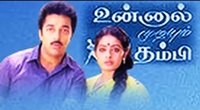
Yeh Kaisa Insaaf Full HD Movie Download
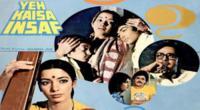
Amber Full HD Movie Download

Free Love Full HD Movie Download
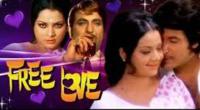
Khuda Gawah Full HD Movie Download
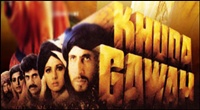
Kshtriya - The Warrior Full HD Movie Download

Bhagawan Shree Krishna Full HD Movie Download

Jeet-Born To Win Full HD Movie Download

Akhari Kshanam Full HD Movie Download
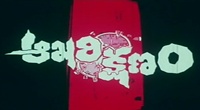
Bhagvat Geeta Full HD Movie Download
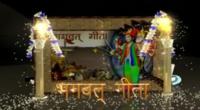
Chikkadu Dorakadu Full HD Movie Download
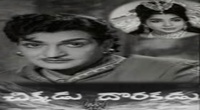
Harry Potter and the Half-Blood Prince Full HD Movie Download
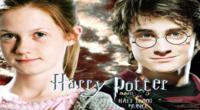
Kaaval Nilayam Full HD Movie Download
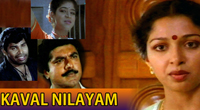
Alexander Full HD Movie Download

Dhanush Full HD Movie Download

Veta Full HD Movie Download

Palleturi Bava Full HD Movie Download
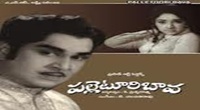
Security Full HD Movie Download

Vijay Full HD Movie Download

Download latest Movie from bollywood
- 1> baaghi 3
- 2> THE SKY IS PINK MOVIE FULL STORY AND REVIEW
- 3> Luka Chuppi
- 4> TO ALL THE BOYS I’VE LOVED BEFORE
- 5> Kabir Singh
- 6> Street Dancer 3D
- 7> Simmba
- 8> Gone Girl
- 9> The Girl Who Lived
- 10> Ludo
- 11> DILWALE DULHANIA LE JAYENGE
- 12> GUILTY
- 13> The Godfather
- 14> Adventures of Rusty
- 15> Sooryavanshi
- 16> Satyameva Jayate 2
- 17> Thappad
- 18> Bhool Bhulaiyaa 2
- 19> KGFChapter 2
- 20> Mardaani 2
- 21> Pinjar
- 22> Shivaji maharaj
- 23> Ek Villian 2
- 24> Hungama 2
- 25> Divergent
- 26> Mumbai Saga
- 27> The Internship
- 28> HIT (telugu)
- 29> Panga
- 30> The perfect date
- 31> 16 December
- 32> Gopala Gopala (Telugu)
- 33> Brahmastra
- 34> Gangubai Kathiawadi
- 35> Manmadhudu
- 36> Nenu local
- 37> Mahanati
- 38> Shatamanam bavathi
- 39> Lagaan
- 40> After
- 41> MOM
- 42> Shamshera
- 43> Raguvaran BTech
- 44> Khakee
- 45> The villain
- 46> OM
- 47> Mr. perfect
- 48> Bueatifull mind
- 49> Hichki
- 50> Gabbar Singh
- 51> Jogi
- 52> Before Sunrise
- 53> Before Sunset
- 54> Before Midnight
- 55> The Big Bull
- 56> Top Gun: Maverick
- 57> The Purge
- 58> The Sky is Pink
- 59> Laxmmi Bomb
- 60> Sadak 2
- 61> Sufna
- 62> Prithviraj
- 63> PK
- 64> Coolie No 1(2020)
- 65> Black Widow
- 66> Dear Zindagi
- 67> Dil Bechara
- 68> PHIR HERA PHERI
- 69> WAR
- 70> Dostana
- 71> RRR: Roudram Ranam Rudhiram
- 72> Maidan
- 73> Dabbang 3
- 74> Chhalaang
- 75> life as we know it
- 76> SherShaah
- 77> Sandeep Aur Pinky Faraar
- 78> Event Horizon
- 79> 83
- 80> Radhe: Your Most Wanted Bhai
- 81> Gunjan Saxena: The Kargil Girl
- 82> Mr India
- 83> Vivah
- 84> Anokha Bandhan
- 85> Ghost
- 86> Bhoot: Part One - The Haunted Ship
- 87> Haseen Dilruba
- 88> Laal Singh Chaddha
- 89> Qismat
- 90> Rajput
- 91> Drive
- 92> Dil Chahta Hai
- 93> Dil Ki Baazi
- 94> Dil Ka Rishta
- 95> Teesri Manzil
- 96> Dil
- 97> Love Aaj Kal
- 98> Khaali Peeli
- 99> Bunty Aur Babli 2
- 100> Atrangi Re
- 101> Gulabo Sitabo
- 102> Jodi
- 103> Suraj Pe Mangal Bhari
- 104> Deewana
- 105> Attack
- 106> Sardar Udham Singh
- 107> Toofan
- 108> THE LOVEBIRDS
- 109> Jersey
- 110> Ginny Weds Sunny
- 111> Thalaivi
- 112> Shiddat
- 113> Angels vs Zombies
- 114> Koi Mil Gya
- 115> Thank God
- 116> Bhuj: The Pride of India
- 117> Hum Aapke Hain Kaun
- 118> The Platform
- 119> Bird Box
- 120> Roohi Afzana
- 121> Torbaaz
- 122> Nikamma
- 123> World War Z
- 124> Extraction
- 125> Train to Busan
- 126> Life of Pi
- 127> SHAADI MEIN JROOR AANA
- 128> Himmat Aur Mehnat
- 129> To All The Boys: P.S. I Still Love You
- 130> Mimi
- 131> Good Newwz
- 132> Shubh Mangal Zyada Saavdhan
- 133> Raabta
- 134> Harry Potter and the Philosopher's Stone
- 135> Harry Potter and the Chamber of Secrets
- 136> Chhapaak
- 137> War of the Worlds
- 138> Harry Potter and the Prisoner of Azkaban
- 139> Harry Potter and the Goblet of Fire
- 140> MURDER MYSTERY
- 141> Shakuntala Devi
- 142> Bachchan Pandey
- 143> Jayeshbhai Jordar
- 144> Sheer Qorma
- 145> Saina
- 146> 'O' Pushpa I hate tears
- 147> Kedarnath
- 148> MS Dhoni The Untold Story
- 149> Chhichhore
- 150> Badhaai Ho
- 151> Unstoppable
- 152> Oz the Great And Powerful
- 153> The Girl on the Train
- 154> Haathi Mere Saathi 2020
- 155> The Conjuring: The Devil Made Me Do It
- 156> Gandhi Se Pehle Gandhi
- 157> The Song of Scorpions
- 158> Srimanthudu
- 159> Hello Guru Prema Kosame
- 160> Beauty and The Beast
- 161> Black Panther
- 162> Charlie and the Chocolate Factory
- 163> Bole Chudiyan
- 164> Fidaa
- 165> Duvvada Jagannadham
- 166> Bruce Lee: The Fighter
- 167> Hyper
- 168> Yaara
- 169> Red (2020)
- 170> Shivam
- 171> That Is Mahalakshmi
- 172> Nishabdham
- 173> Aashram 2020 web series
- 174> Laxmii
- 175> Mismatched
- 176> STUDENT OF THE YEAR 2
- 177> NAIL POLISH
- 178> Ramprasad Ki Tehrvi
- 179> KAAGAZ
- 180> 12 o Clock
- 181> The Power
- 182> bolo hau
- 183> Tribhanga
- 184> JAMUN
- 185> Madam Chief Minister
- 186> Maasaab
- 187> Aadhaar
- 188> Tanhaji
- 189> Bhaagi 3
- 190> Bhootnath
- 191> MALANG
- 192> Jai Mummy Di
- 193> Haathi Mere Saathi 2021
- 194> Shakeela
- 195> Unpaused
- 196> Annayya
- 197> Vamsoddharakudu
- 198> Mrugaraju
- 199> Narasimha Naidu
- 200> Sankranti
- 201> Manasu Maata Vinadhu
- 202> Anjaane
- 203> Apaharan
- 204> Bachke Rehna Re Baba
- 205> Bewafaa
- 206> Roohi
- 207> Radhe
- 208> Zindagi Khoobsoorat Hai
- 209> Yeh Mohabbat Hai
- 210> Yeh Kya Ho Raha Hai?
- 211> The Tomorrow War
- 212> DehradunDiary
- 213> Meri Shaadi Karaoo
- 214> Matruu Ki Bijlee Ka Mandola
- 215> No One Killed Jesica
- 216> Aag Ka Goola
- 217> Eight Million Dollars
- 218> Three Hundred
- 219> Cats and Dog
- 220> Decoy
- 221> Gold Rush
- 222> You Have Got Mail
- 223> Final Destination three
- 224> Tofan
- 225> Jungle
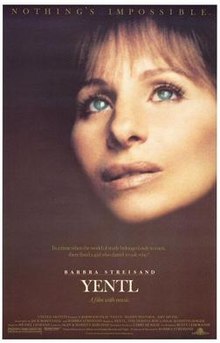 Story of movie Yentl Film :
Story of movie Yentl Film : 